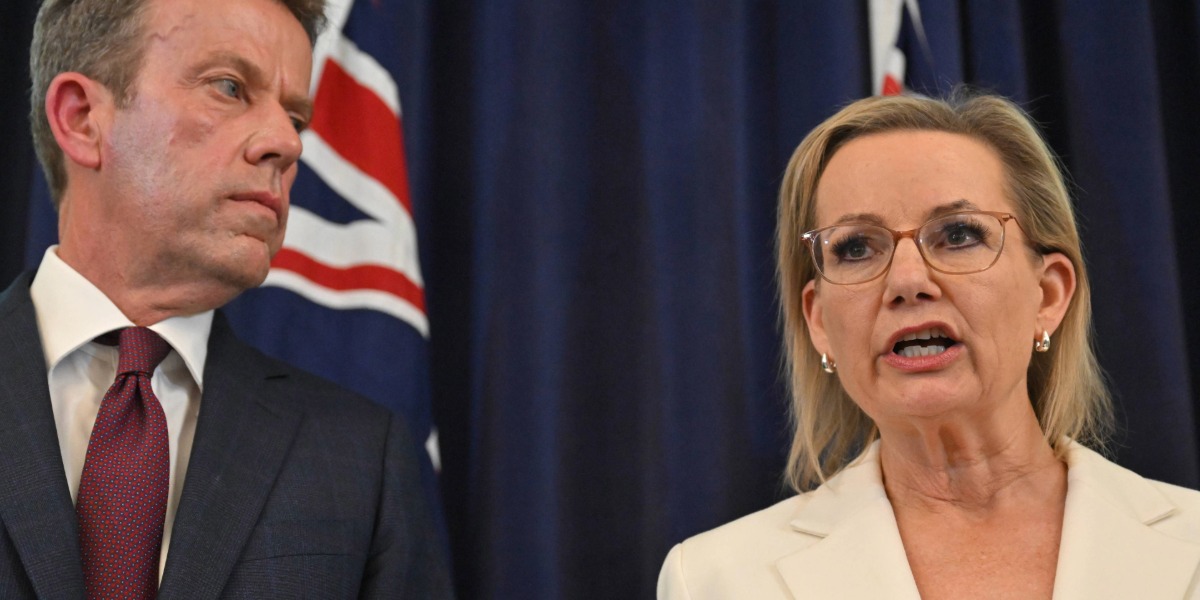The Liberal Party has dumped a commitment to net-zero emissions by 2050 and will soon begin talks with the junior coalition partner on a united position.
A statement confirmed the party’s much-debated climate policy follows a shadow cabinet meeting on Thursday and weeks of division over the issue, which has threatened Sussan Ley’s leadership.
The Liberal Party is expected to maintain its support for staying within the international Paris agreement, signed in 2015, which requires members to increase their emissions targets every five years.
The opposition leader has tasked energy spokesman Dan Tehan, moderate Anne Ruston and conservative Jonno Duniam to negotiate with the Nationals on a joint coalition position.
They will enter discussions with Nationals senators Matt Canavan, Ross Cadell and Susan McDonald over coming days before a joint partyroom meeting on Sunday to rubber-stamp a policy. The Nationals voted to drop the Net Zero ambition 11 days ago, however their alternative policy proposal to return to the Abbott era Emissions Reduction Fund (ERF) has come under criticism for threatening more farmland than renewables.
Member for New England Barnaby Joyce, who largely triggered this current policy position crisis by his hard line and rhetoric, and a seemingly unfounded rumour he was planning to defect to One Nation over the policy, is still not participating in the Nationals Party Room discussions.
The Liberals’ decision comes after a five-hour meeting between all 51 Liberal MPs and senators on Wednesday, when a majority spoke in favour of ditching Australia’s net-zero goal according to people in the room.
Championed by the conservative faction, the party’s climate shift hits Liberal moderates who see their chances of winning back vital inner-city electorates diminished as a result.
Moderate frontbenchers including NSW senators Andrew Bragg and Maria Kovacic have flagged their difficulty in remaining in shadow cabinet if the party endorses backing away from its existing net-zero pledge.
Mr Tehan unveiled a list of 10 principles informing Thursday’s decision, including the two “foundational principles” of keeping the nation’s power supply stable and affordable while also taking action to reduce emissions.
The list also includes a promise to extend the life of ageing coal power plants for as long as possible, lift the ban on nuclear power and scrap a series of Labor policies Liberals say amount to “sneaky carbon taxes”.
Achieving net zero means balancing the amount of greenhouse gases produced by humans with the amount being removed from the atmosphere.
The Labor government has legislated a 2050 deadline for the goal, while it has also set an interim target under the Paris Agreement of achieving between 62 and 70 per cent emissions reductions by 2035 compared to 2005 levels.
Prime Minister Anthony Albanese said the opposition dropping net-zero would take Australia backwards.
“They’re walking away from climate action because they fundamentally do not believe in the science of climate change,” he told reporters in Sydney.
“Australians cannot afford to keep paying the price of coalition infighting when it comes to climate policy and energy policy.”
Got something you want to say about this story? Have your say on our opinion and comment hub, New England Times Engage

